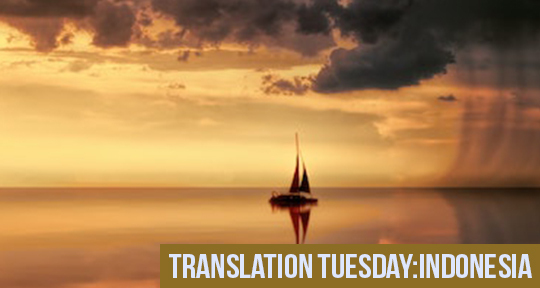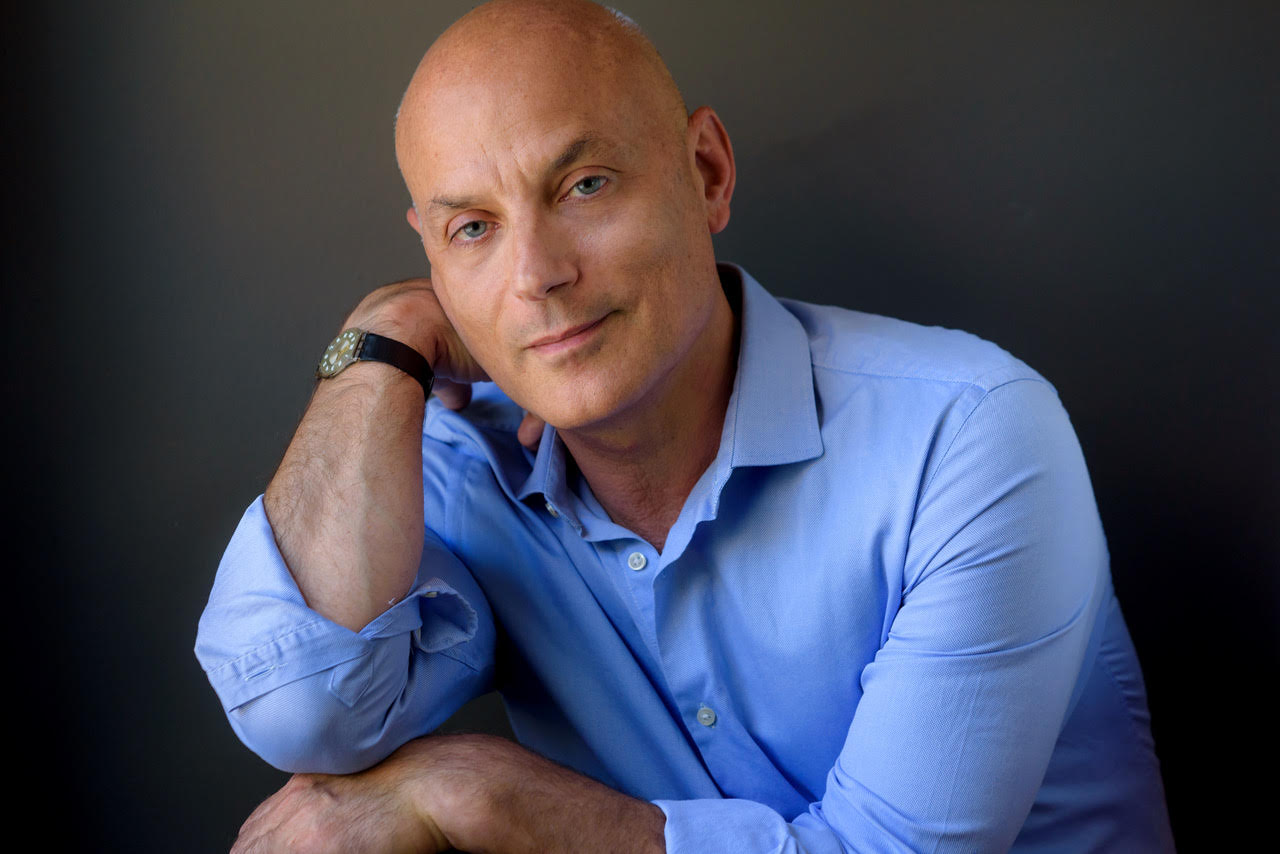Memoirist, critic, and translator Daniel Mendelsohn is perhaps best known for the application of mythic paradigms from the Western classics to the analysis of popular and literary culture. Winner of the National Book Critics Circle Award in 2006 for The Lost: A Search for Six of Six Million, and finalist again in 2012 for his essay collection Waiting for the Barbarians, his criticism frequently graces the pages of The New Yorker and The New York Review of Books. The forthcoming release (Knopf, September 12) of his new memoir, An Odyssey: A Father, A Son, and An Epic—about his octogenarian father’s experience auditing his Odyssey freshman seminar at Bard College and their subsequent voyage aboard an Odyssey-themed cruise—occasioned this conversation with Asymptote Interviews Editor Henry Ace Knight.
Can you tell me about the genesis of the book? Was it taking shape in your mind as early as your dad’s request to sit in on the Odyssey course?
No, not at all. The sequence was that early in 2011, before the semester began, he approached me about taking my course; I knew that he was interested in rereading the classics in his old age, and I said, “Well, I’m doing this Odyssey course in the spring…” And he said, “Oh, can I take it?” It didn’t occur to me at the time that it might be something that I would write about. Then, about halfway through the course, at which point so many interesting and funny things were happening, I started taking notes—his interactions with the kids, the things he said about the text. Much of the book is based on the notes I took right after class, memorable exchanges I recorded. Around the midterm, I thought, “OK, somehow I’ve got to write about this,” although I hardly envisioned a book at that point. In fact, at the end of the semester, when Froma [Zeitlin, a Classics professor at Princeton and Mendelsohn’s mentor] told me about the “Retracing the Odyssey” cruise, I called a friend of mine who was the editor of a travel magazine, and I said, “My dad and I are going on this Odyssey cruise and I think I want to write about it.” But I only thought I was going to write a magazine article! Then, when my dad fell ill, I started thinking all of this was…suddenly it took on a shape, you know: the class and the cruise and his illness. And so I started thinking, in a sort of inchoate way, of how all of this could add up to something: him taking the class, us going on the cruise, and him suddenly having a stroke and thereby raising the question of whether he could be his old ‘self’—a very Odyssean question indeed. I started to see it all as one event moving along an arc and that that arc was the arc of the Odyssey.
Did you start to draw more and more parallels between the Odyssey and your relationship to your father as the semester progressed?
I’ve done this with several books now, this entwining ancient texts and personal narratives. I did it in my first memoir, The Elusive Embrace, in which I wrapped exegeses of various classical texts around a story about me and my family and being a gay man who decided to become a father—my story was interwoven with musings on classical texts about desire and parenting and so on. And then I did it in The Lost, in which the intertext is not a classical text but a biblical text: I used Genesis, with its memorable narratives about fratricide and global destruction and wandering and miraculous survivals, as a kind of foil for this family story about the Holocaust. Once you start thinking about a text, these parallels to your life start to present themselves. So in this case, because my mind was on the Odyssey, everything about what happened to Dad and me, the course, the cruise, started presenting itself as “odyssean,” as potential material, and the parallels between the personal narrative and the text started to make themselves felt. So, for instance, the first major section of my book, which recreates the first weeks of the Odyssey course and our discussions of the first four books of the Odyssey, which are about Odysseus’s son Telemachus going on a sort of fact-finding mission to learn what happened to his absent father, twines around flashbacks to my childhood in which I too am a boy searching for his father, trying to understand who he is. And so on.
What happens when I start thinking about a memoir is that I’ll have an intuition about how a certain text is going to structure the memoir, and then once I’m thinking that way it just takes off. But of course it’s only in the writing that you can really carefully work out the parallels and draw attention to them in a rather purposeful, literary way; so in this sense I’m also creating the parallels, I’m establishing them in my text for the reader. I know the Odyssey intimately, so as things were happening in real life I would think, “Oh my God, this is so Odyssean!”—like the guy on the boat with the scar. [A major revelation in An Odyssey turns on an encounter between Mendelsohn and an elderly fellow passenger who had a scar on his thigh dating to an incident in World War II. In Homer’s Odyssey, a climactic moment is linked to the history of a scar on Odysseus’s thigh.] When I met that old gentleman with the scar I thought, “You cannot make this stuff up!”—as it was happening, I was thinking that no one was going to believe this, it was just too good to be true. But it really happened!
READ MORE…



